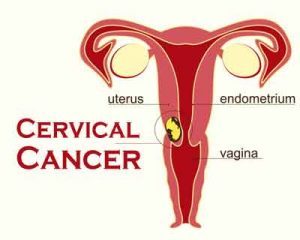WOMEN USING IUDs as Contraceptive have low risk of Cervical Cancer
Prof Dr,DRAM,HIV /AIDS,HEPATITIS ,SEX DISEASES & WEAKNESS expert,New Delhi,India, +917838059592
Women who use an intrauterine device for birth control may have a lower risk of developing cervical cancer, according to a new review and meta-analysis.In the new study, published yesterday (Nov. 8) in the journal Obstetrics & Gynecology, researchers found that the rate of cervical cancer was one-third lower in women who used an intrauterine device (IUD) than in those who did not use such a device.
The researchers cautioned that because the review didn't include clinical work to determine how an IUD might prevent cervical cancer, the results don't mean people should get the device for cancer prevention, said lead author Victoria Cortessis, an epidemiologist at the Keck School of Medicine at the University of Southern California.
Cervical cancer is almost always caused by certain strains of human papillomavirus (HPV), according to the World Health Organization. But only about 1 in 10 women who get an HPV infection goes on to develop cervical cancer, Cortessis said. This happens when the body's immune system fails to kill off the HPV and the viral infection persists, eventually causing cervical cancer.
An IUD may lower a woman's risk of cervical cancer by helping to fight off an HPV infection, Cortessis hypothesized. When an IUD is inserted, it triggers an immune response in the body that could "kick out" an HPV infection, she said. Another possible mechanism could be a long-term immune response, she said. The immune system reacts over time to the foreign body of the IUD, and this immune response could also target the HPV, Cortessis said.
 In the meta-analysis, the researchers looked at 16 studies that included, in total, more than 12,000 women from around the world. All of the studies contained data on the individual women, their IUD use and their history of cervical cancer. The studies also included information on risk factors for the disease, such as age at first vaginal intercourse and if the women had HPV.
In the meta-analysis, the researchers looked at 16 studies that included, in total, more than 12,000 women from around the world. All of the studies contained data on the individual women, their IUD use and their history of cervical cancer. The studies also included information on risk factors for the disease, such as age at first vaginal intercourse and if the women had HPV.
The methodology used by the researchers was "very good," said Eduardo Franco, the director of cancer epidemiology at McGill University in Montreal, who was not involved in the new review.Confounding variables — or factors that the researcher can't control for — have long been a worry in research on IUDs and cervical cancer, Franco told Live Science. And despite the analysis of confounding variables and robust size of the review, there will still be concern about lingering confounding variables until there is a clinical study, he said.
Cortessis agreed that confounding variables are a limitation of the meta-analysis. But no matter how the data was tested in relation to these variables, the researchers found the same results, she said: The rate of cervical cancer in IUD users was a third lower than among nonusers.
- Kidney stones universally present hazard in north india,dillution by water prevent it
- Steroid and placebo effect equally for mild persisting asthma with low sputum eosinophils
- Government wants to fix public healthcare staff shortages with ayush docs: will it work?
- Plea in hc for payment of salaries of edmc, north mcd teachers and doctors
- 7 indian pharma companies named in us lawsuit over inflating generic drug prices
- Woman in up dies after explosion in her mouth during treatment,what is diagnosis?
- Woman in up dies after explosion in her mouth during treatment,what is diagnosis?
- Woman in up dies after explosion in her mouth during treatment,what is diagnosis?
- Air pollution ! mothers organising rally in london,anaesthetist choosing gas,will india follow?
- Cardiac arrest is always not sudden as understood -a study

 Comments (
Comments ( Category (
Category ( Views (
Views (